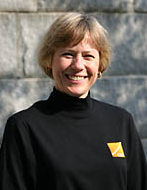 Has the recession ended?
Has the recession ended?
That’s a question I get asked frequently from audience members before or after I start a presentation about the economy.But in the past month, I decided to ask that question to audience members.
About 5 percent of an audience of business people and educators in the Fredericksburg area thought we were still in recession.
At a different meeting, more than half the audience of relocation professionals from around the state believed the recession hasn’t ended.
The recession officially ended in June 2009, according to the National Bureau of Economic Research, the official arbiter of recession dates.
The soft labor market may be influencing some people to think the recession has not ended.
While the unemployment rate in the nation was a fairly low 5 percent in March, a broader unemployment rate — which takes into account people who are working part time but prefer full-time work or are not currently looking for work but have worked in the past 12 months — stood at 9.8 percent.
Perhaps more unsettling, more than 2.2 million people, or 27.6 percent of those unemployed in March, have been trying to find a job for more than half a year. Before the recession, you have to go back to 1984 to find more than 2.2 million people unemployed for a half year or more.
Consumers’ view of the economy also may be colored by the condition of the industry in which we work.
Relocation professionals, who help individuals move to new jobs and regions around the country, are likely affected by the soft labor market as well as the lower level of real estate activity.
Even though existing-home sales have risen, they remain 25 percent below the pre-recession peak.
On the positive side, nonfarm employment has been steadily growing while fewer people are being laid off, based on declining initial unemployment claims.
Almost two years ago, in May 2014, employment in the nation began to exceed its pre-recession peak of 138.4 million. An additional 5.2 million jobs have been added since then.
-
Latest Articles
- Youngkin Budget 2.0 Meets Democrat Demands, Except Demand to Raise Taxes
- Virginia’s Paid Family and Medical Leave Act Deserves a Veto
- Governor Youngkin uses his veto pen to protect farmers and lower-skilled workers
- The Sausage Factory Produces a Digital Sales Tax with Little Explanation or Debate
- Bait and Switch: Reform Reverts to Mo’ Money
Archives
Like Our Facebook Page

